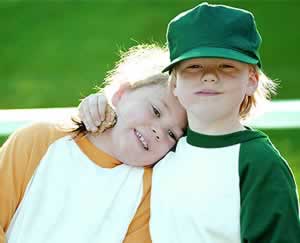Penn Herb Wellness Guide
Breast-Feeding Babies Makes for Fitter Children

Bring on the breast
There are lots of reasons to breast-feed when you can, including lower risks of childhood
- gastrointestinal, ear, and respiratory infections,
- bacterial meningitis,
- allergies and asthma,
- cancers,
- obesity,
- diabetes, and
- sudden infant death syndrome.
Recent studies have suggested that breast-feeding might also predict cardiorespiratory fitness levels later in life, but the results haven’t been consistent. Fitness levels impact overall health, so any strategies aimed at improving fitness may also help reduce mortality from a wide range of health conditions later in life.
The study looked at 1,025 children and 971 adolescents as part of the European Youth Heart Study to determine the effect of breast-feeding duration on fitness levels in childhood. Mothers were asked if they exclusively breast-fed their babies (meaning that the babies had no other liquid or solid foods during this time) and for how long. The study didn’t include babies who were given a combination of formula and breast milk.The children’s fitness levels were measured using a standardized cycling test, and their height, weight, body mass index, and body fat percentage were assessed.
Children and adolescents who were exclusively breast-fed for at least three months as babies had significantly higher fitness levels than those who weren’t breast-fed for as long. Longer duration of breast-feeding was associated with better fitness even in heavier children and in those who were less physically active. “Our findings suggest that early infant feeding method affects an important health marker associated with cardiovascular disease later in life,” commented the study’s authors.
Breast-feeding for more than six months didn’t seem to provide any additional fitness benefits.
Better fitness for life
Being in better shape decreases the risk of developing cancer, diabetes, heart disease, and osteoporosis later in life. Try these tips to give your child a head start for a fit life.
- Breast-feed your baby. If you can do it, breast-feeding is best for your baby. But don’t worry if you can’t; there are still lots of things you can do to boost your baby’s health.
- Be a good role model. What we do is far more important than what we say, and kids get the message loud and clear when we make exercise a priority.
- Get moving together. What better motivation to move is there than playing outside together? Whether it’s a game of tag, a family bike ride, or a stroll around the block after dinner, exercise is always better with a pal.
- Let them get their Zzzs. Studies have found that the amount of sleep a child gets directly affects their chance of becoming obese, and being obese can make it harder to stay fit. Help your child maintain a healthy weight by making sleep a priority.
(Am J Clin Nutr 2012;95:498505)
Copyright 2026 TraceGains, Inc. All rights reserved.


